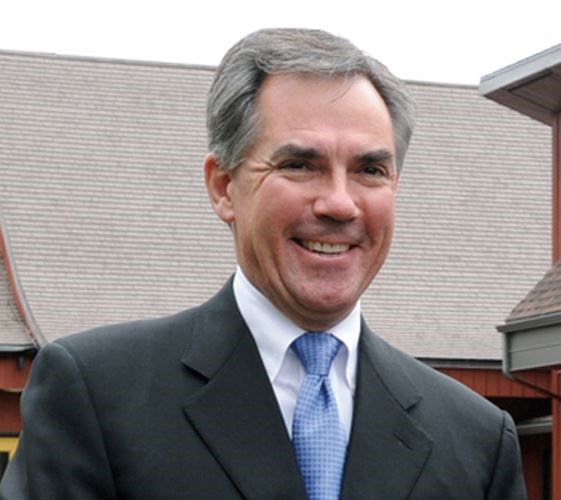Former federal Indian affairs minister Jim Prentice knows it won't be easy to repair the relationship between Northern Gateway and First Nation groups in northern B.C., but he's up for the challenge.
"It's never too late to sit down in a respectful way and talk to First Nations communities and aboriginal communities about what they're concerned about and how to address those concerns," Prentice said Wednesday shortly after Northern Gateway announced he would lead the pipeline company's latest engagement efforts. "I look at the things I've been involved in and in all cases where there's been a successful outcome, it was preceded by a feeling that it was too late. It never is."
Prentice said he believes that projects like Northern Gateway are key for helping young First Nations people get jobs and experience and wasn't "prepared to sit by and not shoulder some of the load personally."
Many local First Nations groups, including the Carrier Sekani Tribal Council and the Yinka Dene Alliance, are opposed to Northern Gateway's plan to connect northern Alberta and Kitimat with a heavy oil pipeline and export terminal and have been adamant that the project should not proceed. They are concerned that the pipeline could cause damage to the environment in the event of a spill and no financial incentives would be enough to make up it.
Nadleh Whut'en chief Martin Louie said his people have been examining the Northern Gateway project for nearly a decade and believe it's not worth the risk. He's not sure how adding a new voice to the discussion will change their opinion if pipeline safety issues aren't addressed.
"It's not the money that we're after," he said. "It's the safety of the land, the water and the people."
Enbridge CEO Al Monaco is hoping that Prentice's experience in the federal government will help restart some of the discussions allow the pipeline's parent company to make headway with First Nations groups who have shied away from engaging in discussions in the past. He said Prentice is the perfect candidate because during his six years in office he spent time around the cabinet table in charge of Indian affairs, industry and the environment and can bring all of those perspectives to the table.
"He's independent of the process, he's passionate about the project, I think, and the need for Canada to access west coast markets," Monaco said. "But he's also very passionate about the role of First Nations and the importance that they play in energy development."
Louie didn't rule out meeting with Prentice, but said he can't foresee his group changing their mind on the pipeline issue. He said since his people have not signed a treaty with any Canadian government, negoitations have to take place on a nation-to-nation basis.
The Yinka Dene Alliance have contemplated launching a court challenge if Northern Gateway is approved and Louie said that's still on the table regardless of how things go with Prentice.
"If we have to go to court, we'll go to court," he said.
Prentice, who describes his role as being an honest broker, said his main goal is to listen to the concerns raised by First Nations groups and find ways to adapt the project to solve those problems.
Prentice left federal politics in 2010 and is currently a senior executive vice-president at CIBC. He'll conduct the Northern Gateway consultations in his capacity as a bank executive, but Northern Gateway will compensate CIBC for the time Prentice spends working on the pipeline project.
Both Prentice and Monaco said there is no timetable to the engagement process and it's not tied to a federal government decision on the Joint Review Panel environmental assessment report, which gave Northern Gateway conditional support in December. He's hopeful the talks will be fruitful.
"I'm an optimist, I'm looking at this project from where we are now and I look at it as an opportunity for First Nations, I think there's a way to address environmental concerns but I think it presents an enormous opportunity for First Nations economic partnerships, that's something I've believed in my entire life," Prentice said.


